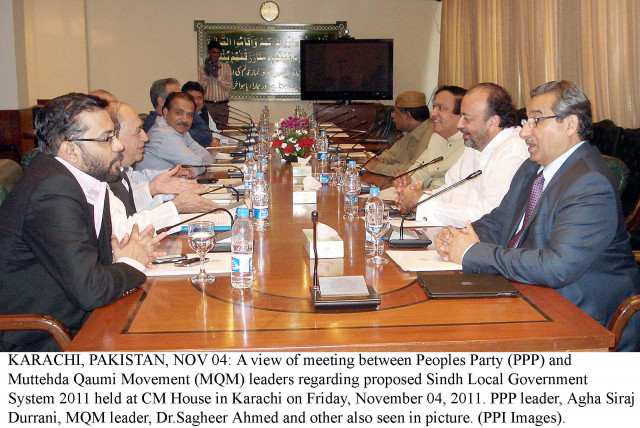Back to commissioners
What matters is the quality of governance, the way things are run than the actual framework of the system itself.
Sindh has reverted back to the situation which existed prior to 1979, with the formal notification issued on November 10 of the revival of the commissionerate system. Sensibly, especially given that the decision was opposed by the MQM, which wished to keep intact the Sindh Local Government Ordinance of 2001 with elected nazims, the PPP held detailed consultations with its allies before the notification went out — persuading the MQM to drop its objections, at least for now. This is in itself no mean feat given that the commissionerate move had been pushed through at a rather fiery PPP meeting some weeks back, with supporters of Dr Zulfikar Mirza most vocally pressing for the revival. So, we have for the moment at least a general sense of accord on the system’s restoration. Karachi has once more been divided into five districts, and the new administrative setup is bound to be very closely watched by the people of the city given that the quality of civic services provided to them leaves much to be desired. This is all the more true given the degree of chaos Karachi has faced in recent times, ranging from law and order issues to the more mundane task of managing a civic infrastructure, which in some parts of the city in particular appears to be breaking down all together.
For the citizens who suffer the many consequences of this, what matters is the quality of governance and the way in which things are run than the actual framework of the system itself. While devolution is in principle a good idea, it must also work on the ground. This matters more than whether the persons running it are called nazims or commissioners. The only way to ensure better administration is to make accountability a part of the process and this could be done by involving the provincial legislature so that the bureaucrats now running the city can be held answerable to the people through their elected representatives. What is most essential is that things that have remained at a standstill for far too long somehow be made to run; the rails may be creaky at first, but they need to be oiled so that people’s lives can improve through efficient and reliable provision of civic services.
Published in The Express Tribune, November 12th, 2011.
















COMMENTS
Comments are moderated and generally will be posted if they are on-topic and not abusive.
For more information, please see our Comments FAQ